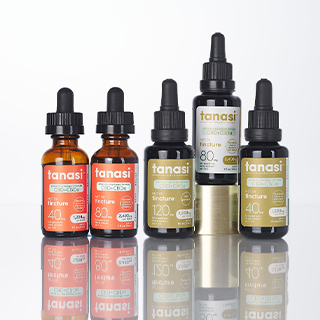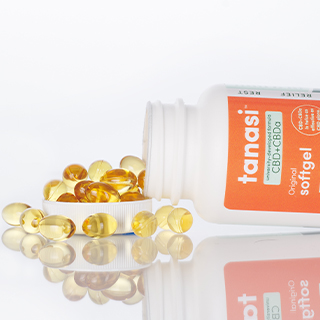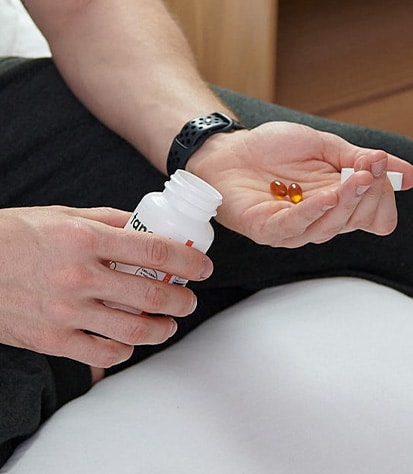Can CBD Cause Headaches?
Posted on June 24th, 2020
Headaches are, without a doubt, one of the most common nervous system disorders. In fact, the World Health Organization (WHO) states that between one half and two-thirds of adults all over the globe experienced at least one headache a year. Cannabidiol (CBD) is enjoying a rise in popularity right now, with many users reporting positive effects from its use. But taking CBD can come with a few undesired side effects. Because, while several studies suggest that taking CBD can reduce headache and migraine discomfort, some professionals are exploring whether CBD use could also trigger headaches. In other words, if you’re a regular CBD user, you might need to ask: can CBD cause headaches?
Here’s the story with CBD, a naturally occurring compound found in industrial hemp strains of the cannabis plant. As a plant-based supplement, CBD is generally safe for consumption. In rare cases, however, taking this compound may trigger certain unwanted side effects. The most common ones include nausea, dizziness, low blood pressure, dry mouth, and drowsiness.
Headaches or migraines are not often listed as potential CBD side effects, but it is possible that CBD-induced headaches happen so rarely that they are not considered among common side effects. CBD is a natural anti-inflammatory and why people who take blood thinner medication should not consumer CBD without discussing with their doctor.
There are two possible ways your CBD use could trigger a headache: your dosage and the quality of CBD you consume. In this post, we’ll examine both potential causes.
CBD Side Effects
Recently, scientists re-discovered our bodies have an endocannabinoid system (ECS), which interacts with cannabinoids in hemp-extracts such as CBD. Now, this system is really complex, and more research will be needed before we can draw any solid conclusions as to how CBD works within your body to create certain beneficial effects. That’s because the research on this compound is still in its infancy and more conclusive, long-term studies are still a few years away.
Still, early CBD studies reveal that cannabidiol may help symptoms of anxiety, depression, pain sensitivity, and blood pressure problems. But as these studies continue to explore the benefits of CBD, we also need to examine the potential side effects associated with regular cannabidiol supplementation.
In order to help shine a light on the full CBD picture, let’s do a quick review:
- CBD is one of the many cannabinoids found in the Cannabis sativa plant.
- While CBD offers users potentially therapeutic benefits, it does not cause a psychoactive high.
- Because of its non-psychoactive nature, CBD is generally a safer option than THC for addressing conditions that may be improved through the endocannabinoid system’s regulation.
- Some people claim that CBD oil can trigger headaches and allergies. It’s important to note that CBD and CBD oil are actually different products, although very similar in nature. Basically, CBD oil is a product made when CBD is extracted from the hemp plant. The extraction process changes the nature of the CBD and unleashes certain potentially beneficial effects in the product.
So, Can CBD Cause Headaches?
Before taking any new medication or supplement, it’s important to research any potential side effects. Fortunately, scientists are a step ahead of you in exploring potential CBD side effects. According to a study done in 1986, dystonic cannabidiol users (individuals with a neurologic disorder that causes muscle tremors) may be prone to lightheadedness, psychomotor slowing, hypertension sedation, and dry mouth. Of course, there’s a catch: the side effects depended on the size of the CBD dose. And, even when side effects popped up, the study did not find any evidence regarding CBD use as a potential cause of headaches.
Another study published by Cannabis and Cannabinoid Research back in 2017 states that CBD may cause appetite and weight issues, as well as diarrhea, and tiredness. So, can CBD cause headaches? The publication, however, does not mention headaches as a potential CBD side effect. Also, the stated side effects are mild in nature, meaning there were no life-threatening risks found in the study.
 CBD Oil Dose
CBD Oil Dose
When it comes to CBD consumption, it is important to carefully monitor your dose size. We always recommend starting low and slowly increasing your dose size until you achieve your desired effect. Why is this such an important guideline? Most of the CBD side effects detected by scientists are often due to uncontrolled CBD use. As mentioned earlier, the quality of this substance is also an important aspect to keep in mind. Buying from unregistered dealers, or purchasing low-quality strains virtually guarantees your disappointment and could pave the way for unwanted side effects.
Begin With Moderate CBD Doses
Even if you do your homework on the quality and legitimacy of a certain CBD product, it’s important to be careful about your dose size. As we mentioned earlier, start with a small dose size and allow your body to get used to that CBD concentration, especially if it is your first time or if you are trying a new form of CBD. Even though CBD is non-toxic, it’s important to start low and gradually increase the dose. This is the best way to avoid unwanted side effects. And remember to consult your practitioner before starting a new supplement, as your current state of health could determine your optimal dose size, as well as any contraindications to your CBD use.
The Downside of Poor CBD Quality
Given the explosive market for CBD, some businesses will try to capitalize on this supplement’s popularity, at the expense of unsuspecting users. This often leads to disappointments as low-quality strains cause severe and consistent side effects, including respiratory issues, allergies, and even headaches. While less reputable CBD brands sell their products at lower prices, be aware that you may ultimately pay for that discount with your health.
The Importance of Purchasing High-Quality CBD
Purchasing CBD from an illegitimate seller comes with the downside of not knowing where your product was sourced. Unfortunately, there are CBD dealers who aren’t even licensed to deal with this product. As such, It’s important to educate yourself regarding the proper use of CBD products, legitimate sources, and proof of product purity. That being said, here are a few things to consider when buying any CBD product:
Where Does It Come From?
The cannabis plant varies from region to region. These plants are susceptible to absorbing mercury, lead, and other chemicals; if you are buying a product from overseas, carefully research the region where your CBD was grown. The packaging might contain misinformation, as well as a low-quality strain of CBD extract. Some toxic chemicals might also find their way into your packaging, which would have an even more severe impact on your health.
3rd Party Laboratory Test
Given how largely unregulated the CBD industry is, it is important to take precautions and only purchase products from manufacturers who provide evidence of a 3rd party testing process. These tests tell you about every included ingredient in your CBD, as well as identifying their quality and potency. Additionally, third-party testing will highlight residual solvents in your CBD product, providing an early warning system for signs that chemical fertilizers, microbial contamination, and pesticides have made their way into the supplement.
 CBD Can Actually Alleviate Tension Headaches
CBD Can Actually Alleviate Tension Headaches
So, we’ve reviewed that poor-quality CBD can trigger headaches. But let’s remember the more important facts: several studies suggest that CBD can actually provide relief from tension headaches because the cannabinoid can address underlying triggers. Tension headaches are often caused by stress, fatigue, anxiety, depression, caffeine withdrawal, and weather changes. CBD may not be able to control how much coffee you drink or the weather outside, but it could possibly help address symptoms of stress or anxiety. It may even improve the quality of your nightly sleep.
Does Lack of Sleep Trigger Headaches
So many people experience headaches due to the loss of proper sleep and fatigue. According to studies, people who experience headaches and migraines are more likely to suffer from sleeping disorders. Studies suggest that cannabidiol may improve sleep by potentially relieving the anxiety that often causes sleeplessness and troubled nights. So using CBD may prevent fatigue-triggered tension headaches.
Is it All in Your Head?
As with any experience, there’s always the chance that you might be imagining a link between your cannabidiol use and suggested side effects, including headaches. This is especially true because there are numerous types of headaches, each with their own contributing causes. Can CBD cause headaches? Well, even if you develop a headache, don’t be too quick to blame your CBD use. If cutting back on the size or frequency of your CBD dose does not alleviate your headaches, chances are CBD is not the culprit. And, if your headaches persist, with or without CBD use, be sure to discuss your symptoms with a healthcare provider.

 CBD Oil Dose
CBD Oil Dose CBD Can Actually Alleviate Tension Headaches
CBD Can Actually Alleviate Tension Headaches



